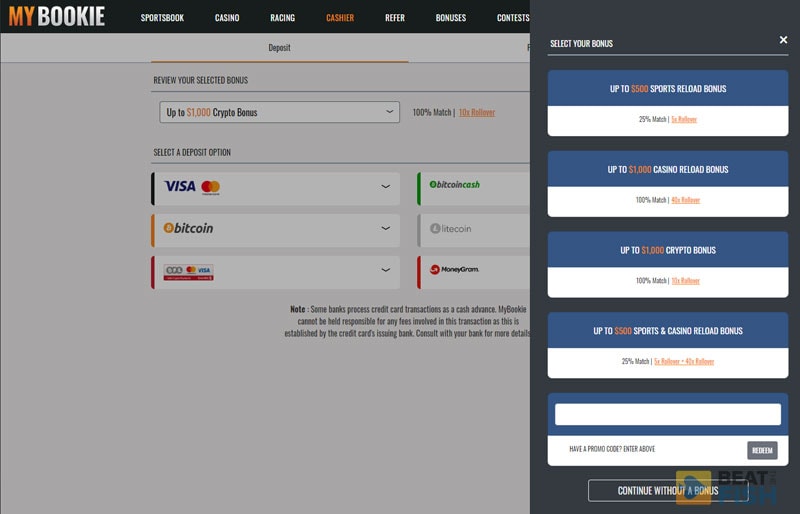Is Mybookie A Scam
It’s not often that offshore online sportsbooks — where tens of billions of dollars are wagered by Americans every year — get much in the way of bad press. In fact, they’re often really good at getting good press mentions in the US.
WARNING: MY BOOKIE ONLINE BETTING IS A SCAM! DO NOT PUT ANY OF YOUR BETS THROUGH THEM, YOU’ll NEVER RECEIVE ANY OF YOUR WINNINGS IF YOU DO.
- MyBookie going away doesn’t solve much for legal sports betting Portnoy’s rant against an illegal bookmaker is certainly welcome news for proponents of legal betting. But let’s not make it out to be more than it is, which is a pissing match between a media outlet that thrives on such things and exactly one (1) illegal sportsbook.
- MyBookie Payout. The cash or payouts on a bet are processed within 2 working days, which is a pretty good deal. Mybookie.ag payout can be collected after one successful betting at the conclusion of a game.
That’s why it captivated the sports betting world and some of the mainstream media when Barstool Sports — and its leader, Dave Portnoy — suddenly took aim at one offshore book, called MyBookie.
We won’t detail the feud, but here’s a pretty good summation of what happened from Portnoy (warning, not at all suitable for work):
Only idiots would gamble with @betmybookiepic.twitter.com/4QqoMnbKF5
— Dave Portnoy (@stoolpresidente) April 9, 2019
Anyway, we’re not here to recount the blow by blow of the simmering feud. What we are here to tell you is what you should know about offshore sportsbooks, if you’re familiar with them or not:
Offshore sportsbooks like MyBookie operate illegally
Offshore sportsbooks are not sort of illegal or kind of illegal. They are operating illegally if they are taking wagers from bettors in the US. Full stop.
MyBookie is hardly the only sportsbook site or app that does this. There are dozens, if not more, although there are a handful of truly major players offshore.
Offshore sportsbooks violate at a minimum:
- The federal Wire Act
- Likely some other federal laws
- A variety of state laws that prohibit unregulated sports betting, or just ban it altogether.

The fact that some offshore books have a license to operate in Costa Rica or some Caribbean nation is great and all, and it makes them legal in that jurisdiction. People might cite an ongoing World Trade Organization dispute between the US and Antigua, but that is not a magic elixir for legality, either.
I’ll preface this next part as saying I am not a lawyer, and don’t take this as legal advice. But individual bettors at offshore sportsbook don’t seem to be under any kind of legal threat.
That doesn’t mean it’s entirely safe to do so, or that your money is under no threat if US law enforcement suddenly decided to start enforcing existing laws.

Anyway, the takeaway is that MyBookie (and other books) are illegally operating, like Portnoy says. Lots of people think, erroneously, that the US Supreme Court just legalized sports betting everywhere last year, which is not at all the case.
Legal US sportsbooks have an inherent disadvantage vs. offshore books
Other than the fact that you are trying to evade US authorities and likely have difficulties with payment processing, offshore books have a decided advantage over legal ones in the US.
First off, there aren’t many of the legal variety. There are legal mobile apps only in New Jersey and Nevada. There will be later this year in Pennsylvania and West Virginiaand possibly Rhode Island.
If you’re in any other state — and this is important — you’re not betting on a legal app. That’s one of just several advantages that offshore books have that legal books don’t have to contend with. Offshore books:
- Operate in just about any state they choose to serve. Legal sportsbooks must operate only in the states in which they are authorized.
- The regulatory regime for offshore sportsbooks is basically non-existent, while legal books have to deal with more strict regulation, and different regulations in every state. This takes money and manpower to deal with.
- Offshore sportsbooks don’t have to pay the same kinds of fees and taxes that regulated books do, especially a .25 percent tax on all wagers that the US government levies.
MyBookie going away doesn’t solve much for legal sports betting
Portnoy’s rant against an illegal bookmaker is certainly welcome news for proponents of legal betting. But let’s not make it out to be more than it is, which is a pissing match between a media outlet that thrives on such things and exactly one (1) illegal sportsbook.
Is My Bookie A Scam
It does shine a light on something that doesn’t get much play in the US — the fact that a sportsbook is taking wagers illegally. Far too often I see media outlets citing offshore books for quotes or odds, with no mention of their status in the US.
But Portnoy wasn’t ranting against ALL illegal sports betting. Portnoy got mad at one of them on Twitter, and he is trying to shut them down.
Is Mybookie A Scam
That’s great. But if MyBookie gets shut down, all of that action just moves to another offshore sportsbook. Nothing is really solved.
Is Mybookie A Scam Alert
There are plenty of believers and supporters of the offshore books, and I don’t take any issue with people who have no other options for legal betting.
But in order to have a legal sports betting market truly succeed, you can’t just let these sportsbooks exist in the status quo. Normalizing them alongside the legal bookmakers just reinforces their inherent advantages, as they ride the wave of popularity and increased search traffic around sports betting.
So it starts with MyBookie. But it doesn’t end there.